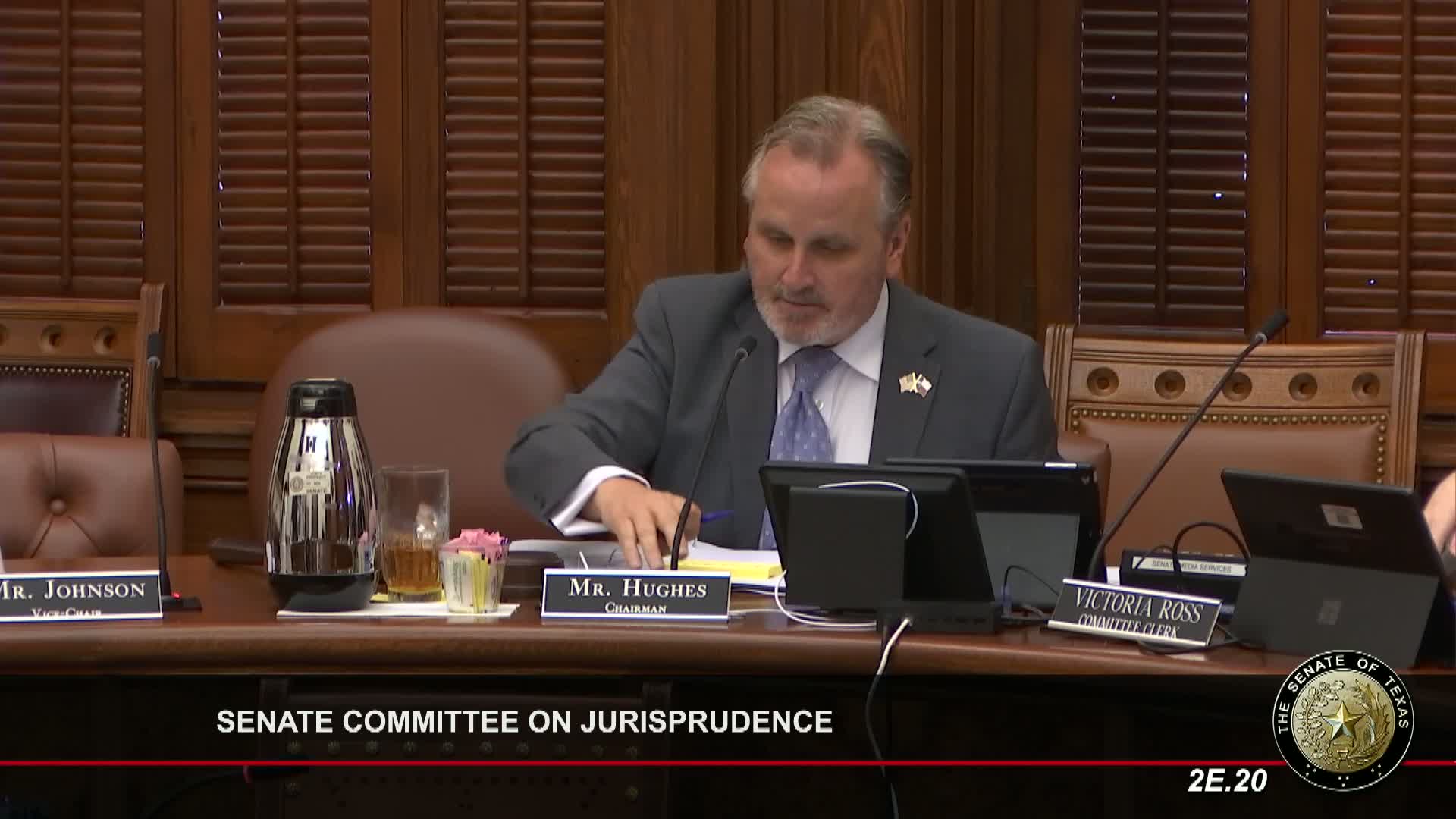Article not found
This article is no longer available. But don't worry—we've gathered other articles that discuss the same topic.
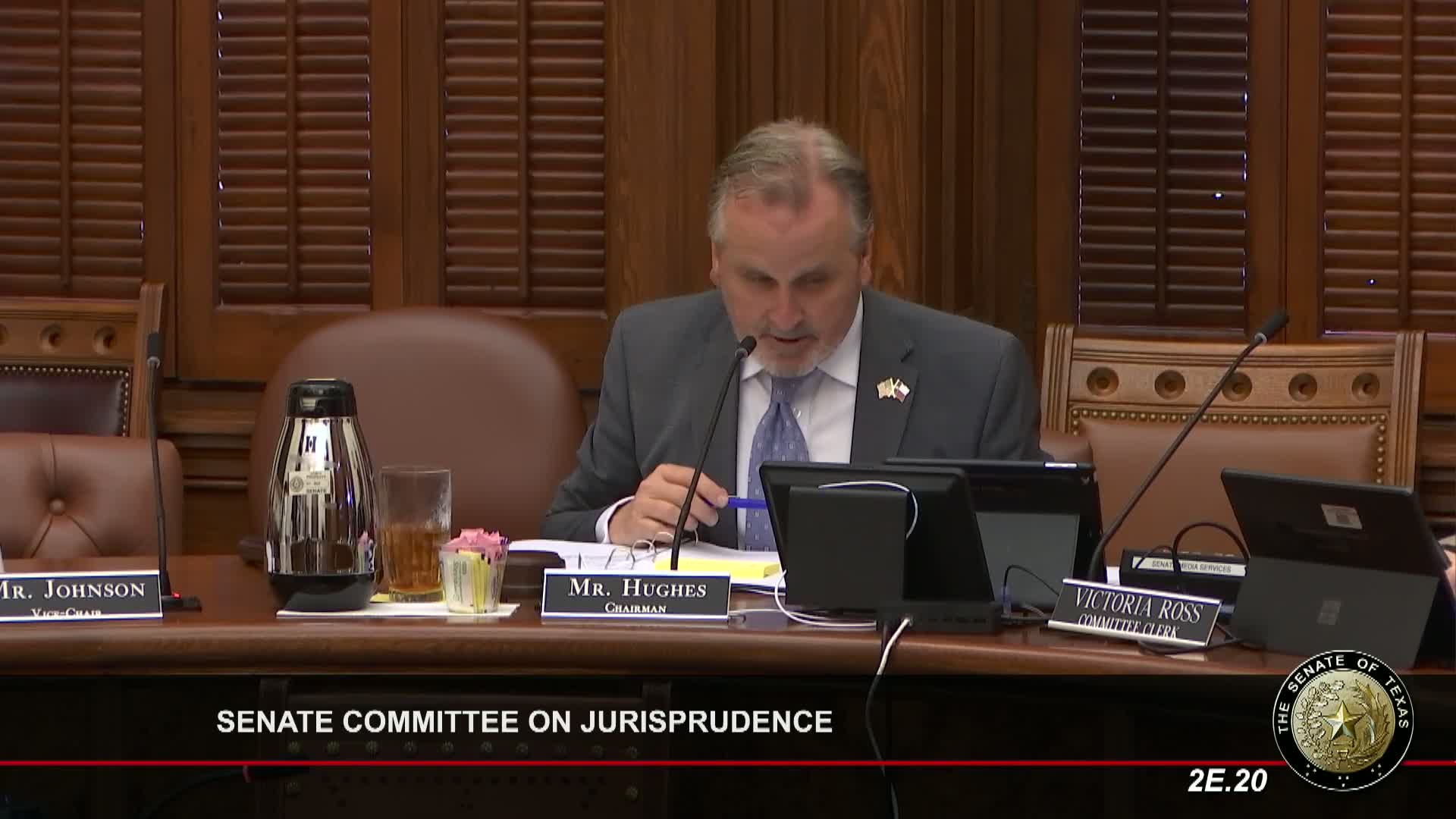
Bill would clarify comptroller’s role in remitting excess probate court fees
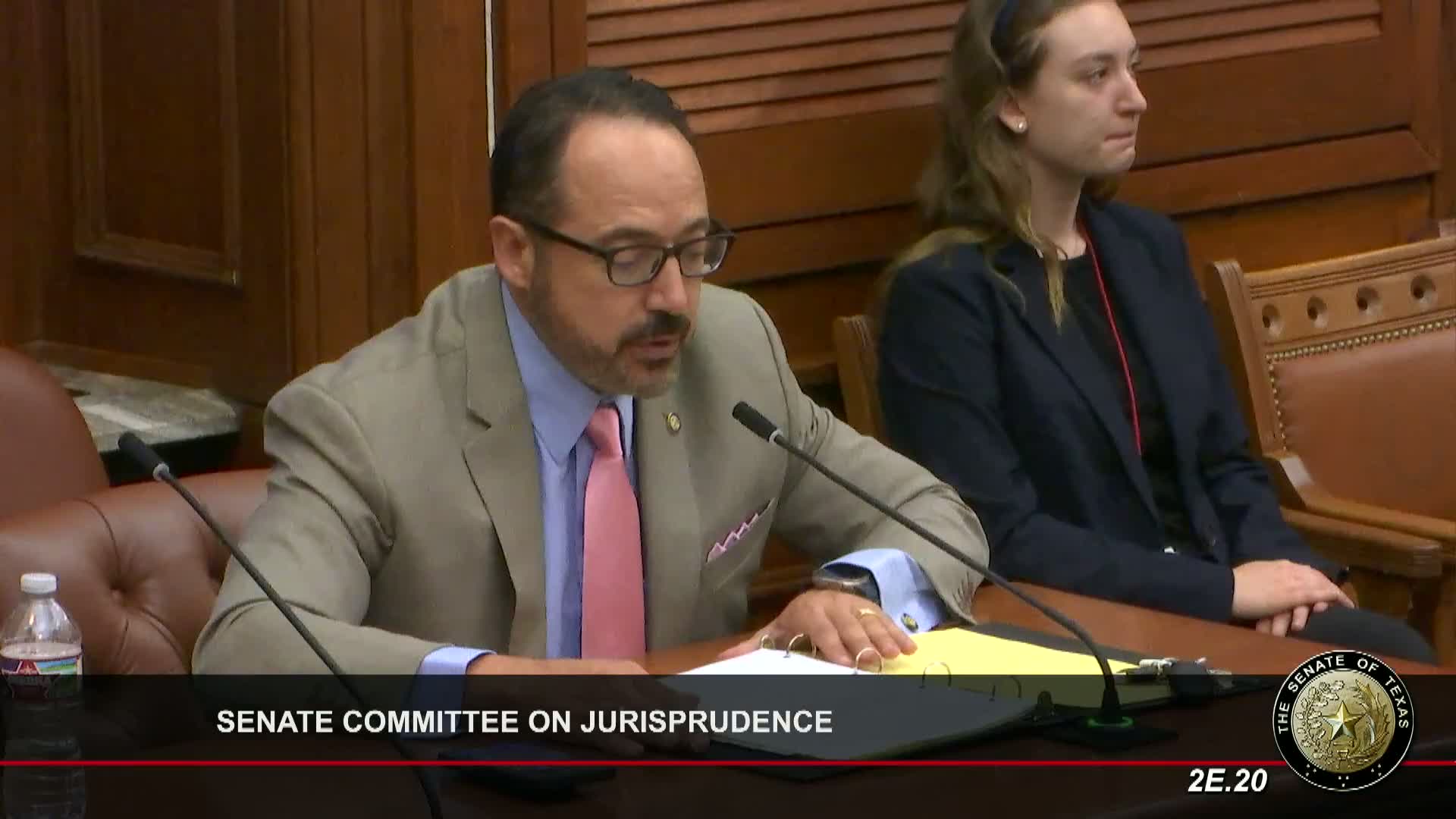
Bill would require statewide elder‑abuse training for judges, authors say
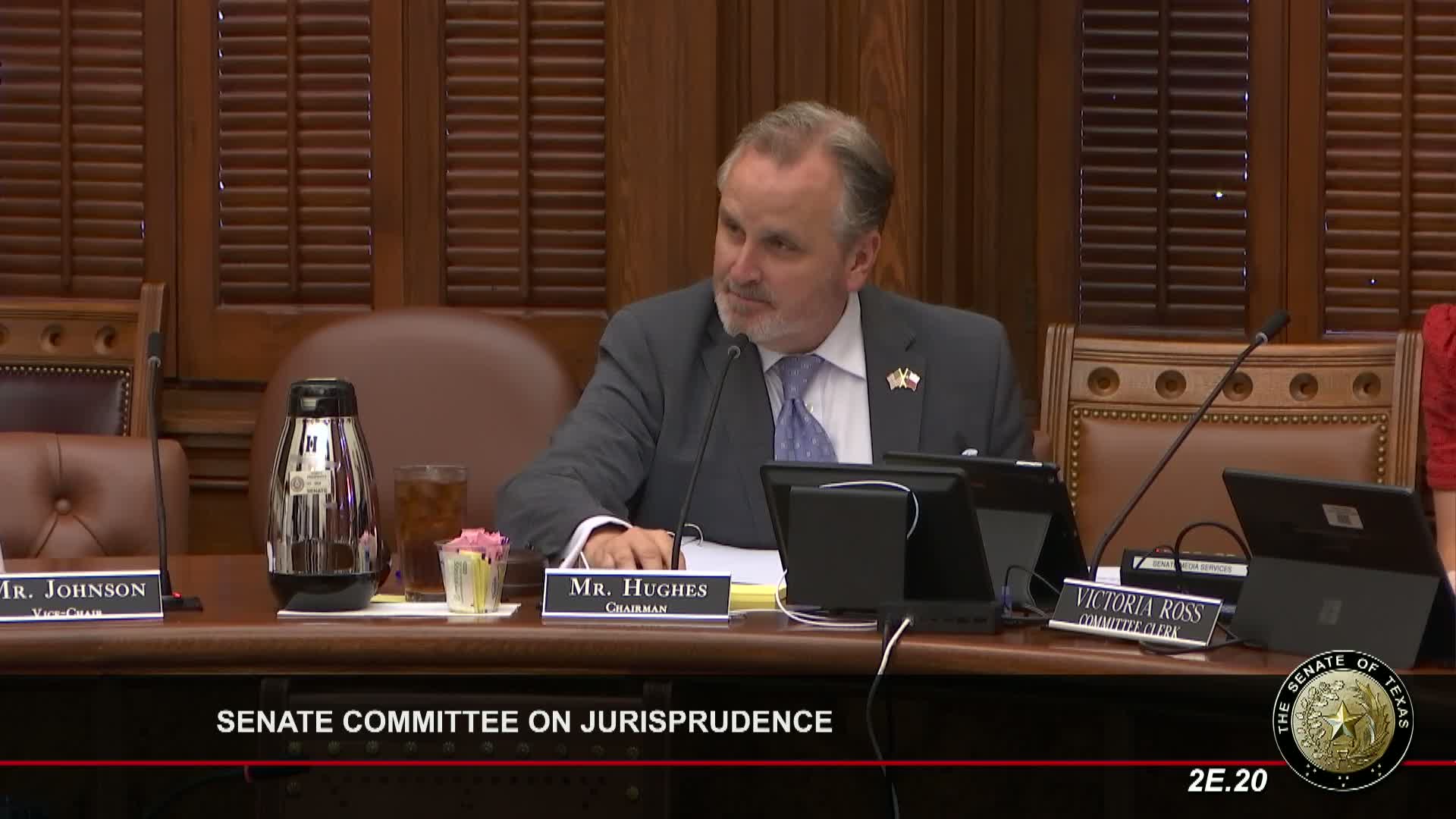
Committee hears evidence to halve interest rate on child support arrears; substitute delays effective date
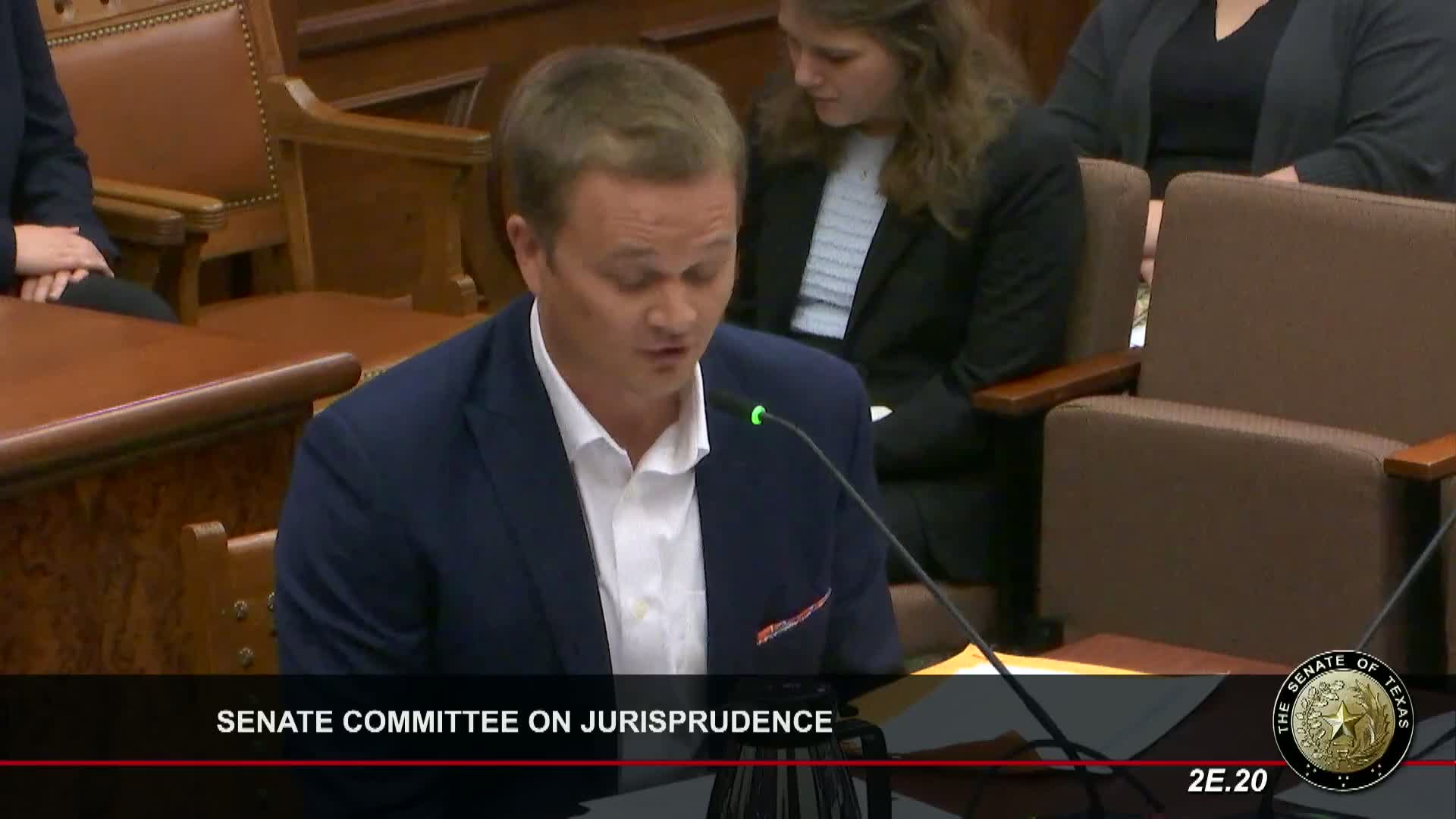
Senator Parker proposes 180-day trial deadline for temporary managing conservatorship cases
